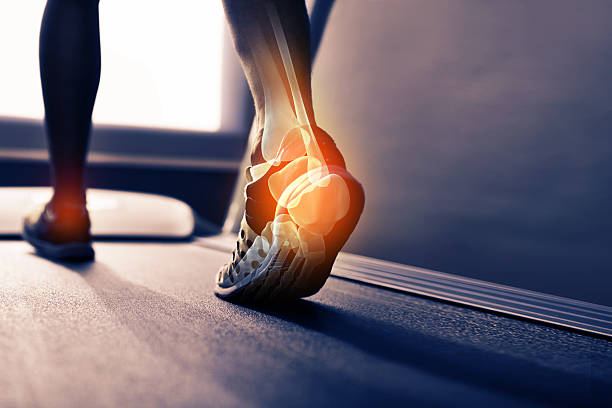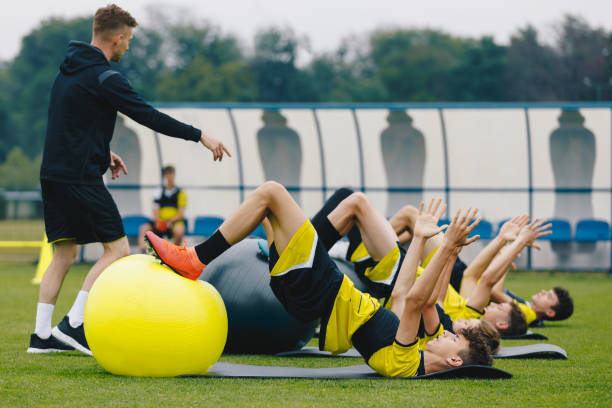Sports Physio
Unlocking the Power of Sports Physio
Enhancing Recovery, Strength, and Injury Prevention for Athletes
Sports physio is a specialized field within physiotherapy focused on helping athletes optimize performance, recover from injuries, and prevent future issues. Whether you’re a professional athlete or a fitness enthusiast, sports physio can help address injuries, build strength, and promote resilience through tailored treatment plans, therapies, and exercises. With the guidance of trained sports physiotherapists and clinics equipped to handle various injuries, athletes can access comprehensive care for immediate and long-term recovery.
What is Sports Physio?
Sports physio, or sports physiotherapy, is dedicated to assessing, diagnosing, and treating sport-related injuries. Unlike general physiotherapy, sports physio targets issues commonly associated with athletic activities, such as overuse injuries, stress fractures, and joint sprains. Sports physiotherapists are well-versed in treating specific injuries, such as ACL tears, hamstring strains, and shoulder dislocations, while also providing preventive exercises to minimize future injury risks.
A sports injury clinic offers the latest therapeutic interventions, such as dry needling, deep tissue massage, hydrotherapy, and mobilization techniques. These clinics prioritize rapid and safe recovery to return athletes to their optimal fitness and performance levels as soon as possible.
Common Sports Injuries and Their Treatments
Athletic pursuits can sometimes lead to injuries ranging from mild sprains to severe muscle tears and fractures. Here’s a look at common injuries treated in sports physiotherapy:
ACL Injuries
ACL injuries are common among athletes involved in high-impact sports like basketball and soccer. A sports physiotherapist typically provides a combination of muscle-strengthening exercises, mobilization, and hydrotherapy to support the knee’s stability and range of motion during ACL rehab.
Hamstring Strains
Hamstring injuries are notorious for their impact on athletes, limiting flexibility and power. Treatment often includes deep tissue massage, stretching exercises, and targeted strength training to prevent future strains.
Achilles Ruptures and Tendonitis
The Achilles tendon is prone to injury, especially in runners. Rehab often involves soft tissue therapy, calf muscle strengthening, and flexibility exercises to aid in recovery and reduce the likelihood of re-injury.

Shoulder Injuries
Common shoulder injuries, like rotator cuff tears, often result from overuse. Sports physios provide massage therapy, mobilization techniques, and strength training to improve shoulder stability and reduce pain.
Groin Strains
Athletes in sports requiring sudden directional changes are susceptible to groin strains. Sports physios offer tailored rehab exercises, soft tissue mobilization, and strengthening exercises to manage these injuries.
Stress Fractures
Stress fractures are micro-cracks in bones caused by repetitive stress. Physiotherapy clinics offer personalized low-impact exercise regimens and dry needling to relieve muscle tension and protect vulnerable areas.
Sprained Ankles
A sprained ankle is a common injury across all sports. A comprehensive physio plan for sprains includes exercises to rebuild balance, ankle strength, and flexibility while reducing the risk of recurrence.
The Role of Sports Physio in Preventing Injuries
→ Injury prevention is a critical part of sports physio. Sports physiotherapists work closely with athletes to create preventative exercise routines designed to increase muscle strength, flexibility, and joint stability. For example, athletes can benefit from specific exercises that strengthen weak areas prone to overuse injuries. By focusing on injury prevention, sports physio aims to reduce time spent recovering and maximize time in training and competition.
→ Sports physios also educate athletes on proper movement mechanics to avoid injuries. For instance, learning the correct technique for lifting weights can reduce the risk of soft tissue injuries and stress fractures. Preventative sports massage, deep tissue massage, and muscle mobilization can also aid in keeping the body in prime condition.
Recovery and Rehabilitation for Athletes
After an injury, a well-structured rehab program is vital for full recovery. Sports injury clinics provide targeted treatment approaches that encompass various modalities, such as:
Dry Needling
This technique alleviates muscle tightness, reduces pain, and promotes faster recovery. Often used in cases of muscle knots or trigger points, dry needling can relieve stress on injured muscles and aid in healing.
Massage Therapy
Deep tissue massage and sports massage play a significant role in rehabilitation, helping reduce muscle stiffness and inflammation. A trained massage therapist can address sore muscles, release tension, and improve circulation, speeding up recovery time.
Hydrotherapy
Using water resistance, hydrotherapy allows low-impact strength training and is particularly beneficial in ACL and knee rehabilitation. Water exercises offer a safe environment for athletes to regain strength without placing excessive stress on healing joints and muscles.
Exercise and Stretching Programs
Individualized exercise regimens target injured areas, strengthening and conditioning muscles to prevent further issues. Stretching exercises, especially those focusing on flexibility, help to reduce stiffness and restore a full range of motion post-injury
Soft Tissue Therapy
This therapy treats injured soft tissues like muscles, ligaments, and tendons. It includes techniques like deep tissue massage, trigger point therapy, and stretching, which help in managing pain and preventing scar tissue buildup.
Advanced Sports Physiotherapy Techniques
Modern sports physio integrates a variety of therapeutic interventions, ensuring that athletes have a holistic approach to health care. Some advanced techniques include:
Importance of Diagnosis and Continuous Monitoring
A sports physio’s role extends beyond treatment; they also focus on diagnosing injuries accurately. Early diagnosis is crucial in conditions like Achilles ruptures, groin strains, and stress fractures, where delayed treatment can lead to prolonged recovery. Physiotherapists continuously monitor an athlete’s progress, adjusting the treatment plan as needed to ensure optimal recovery.
Sports Physio for Improved Performance
Sports physiotherapy isn’t just about treating injuries; it also enhances athletic performance. Regular physio sessions improve flexibility, strength, and endurance, key components of athleticism. Physiotherapists provide exercises to boost muscle strength, improve coordination, and optimize movement patterns. This level of precision enables athletes to push their limits, perform at their best, and achieve peak fitness levels.
When Should Athletes Seek Sports Physio?
Athletes should consider sports physio whenever they experience pain, stiffness, or discomfort that affects their performance. Early intervention is essential, as untreated injuries can lead to overuse injuries or chronic conditions. Visiting a sports injury clinic at the onset of symptoms can prevent minor issues from escalating into severe problems.
Sports physiotherapy is also beneficial for athletes returning from surgery, such as an ACL repair, or those managing long-term conditions like tendonitis. Regular physio appointments help maintain strength and flexibility, which are essential for managing chronic pain and improving the overall quality of life.







